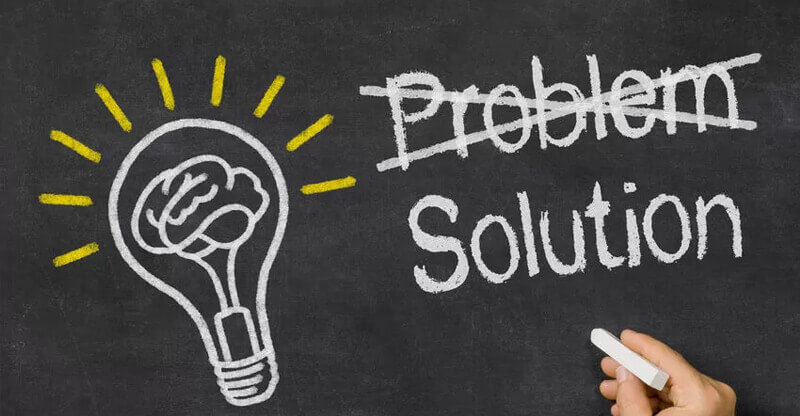How Blockchain Technology Is Disrupting Various Industries
Introduction
A distributed, decentralised, and immutable ledger made possible by blockchain technology allows for safe and open record-keeping. This technology is upending several different industries by offering creative and practical solutions to issues that have beset these sectors for years. Blockchain technology can change the way we handle assets, track goods and services, store and transfer value, and perform business.
What is blockchain technology?
Blockchain technology is a network of computer-based distributed digital records. The blockchain is a chain of unbreakable blocks linked to the preceding block by a unique digital signature known as a hash. The distributed architecture of the blockchain makes it immune to assaults like hacking and tampering. With the help of this technology, intermediaries are no longer necessary, and there is a decrease in transaction costs and an improvement in efficiency and transparency.
Finance Industry
One of the first industries to use blockchain technology was the financial sector. Blockchain disrupts various aspects of the financial sector, including banking, payments, and coins.

Blockchain in banking
The said technology is revolutionising how banks conduct business by offering secure and open options for data storage, transactions, and identification verification. Banks are investigating blockchain technology to increase customer satisfaction, cut expenses, and improve operational efficiency. By establishing an unchangeable and transparent audit record, blockchain can also aid in preventing fraud and money laundering.
Cryptocurrencies and blockchain
The technology that powers coins like Bitcoin and Ethereum are called blockchain. Cryptocurrencies make peer-to-peer transactions possible without intermediaries like banks or other financial organisations. Cryptocurrencies built on blockchain technology are safe, open, decentralised and immune to censure and government meddling.
Blockchain-based payment systems
Payment methods are becoming more secure and effective thanks to blockchain technology. Traditional payment methods are slower, more expensive, and less safe than blockchain-based ones. Make cross-border transactions, micropayments, and other transactions that are not feasible with conventional payment systems using these payment systems.
Healthcare Industry
Blockchain technology is also upending the healthcare sector. Blockchain technology in the healthcare industry transforms different facets of healthcare, including clinical trial administration, drug supply chain management, and medical record-keeping.

Medical record keeping
Systems for keeping track of medical records can be made transparent and safe using Blockchain technology in the healthcare industry. These systems can lower costs, improve patient privacy, and help avoid medical errors. Medical mistake reduction is another benefit of blockchain-based medical record-keeping. Healthcare providers have access to all pertinent medical information because medical records are kept on a single, secure platform, which lowers the possibility of incorrect diagnosis or treatment: better patient outcomes and lower healthcare costs following this.
Drug traceability and supply chain management
The use of blockchain technology in the healthcare industry positively affects the pharmaceutical business. Blockchain technology can offer a transparent and immutable account of the entire drug supply chain, from production to distribution. This can lower the chance of drug diversion, avoid counterfeiting, and increase patient safety.
Clinical trial management
Blockchain technology in the healthcare industry makes clinical trial management systems transparent and safe. This can improve patient privacy, protect against fraud, and guarantee data integrity. Using blockchain technology, researchers can lower expenses and expedite the drug development process.
Real Estate Industry
Another sector that is being affected by blockchain technology is the real estate sector. Blockchain is transforming the real estate business, including property title management, smart contracts for real estate transactions, and rental property management.

Property title management
Safely and openly manage property titles using blockchain technology. This can lower the price of title changes and assist in preventing fraud. By reducing the time and expense associated with title transfers, blockchain-based property title administration can also contribute to the efficiency of the real estate sector.
Smart contracts for real estate transactions
Automate and secure real estate deals using blockchain-based smart contracts. Smart contracts are self-executing agreements that are started when certain circumstances are met. Automate real estate deals using smart contracts, eliminating the need for intermediaries and increasing industry productivity.
Property rental management
Use blockchain technology to create a safe and open method for renting out real estate. Decrease the expense of managing rental properties, improve tenant screening and decrease fraud with blockchain-based property administration.
Supply Chain Management
SCM is changing due to blockchain technology’s openness, traceability, and efficiency. Supply chain operations can be made more effective, prevent fraud, and reduce the danger of producing counterfeit goods.
Transparency in supply chain management
By producing immutable and transparent supply chain documentation, blockchain technology can increase transparency in supply chain management. This can lessen the chance of counterfeiting and help avoid fraud. By ensuring that their supply networks are ethically and socially responsible, businesses can also advance their efforts to be more sustainable.
Product tracking and tracing
Track and trace products from production to distribution using blockchain technology. This can lower the chance of product theft and misdirection and increase product safety. By cutting down on the time and expense associated with product recalls, blockchain-based product monitoring and tracing can also help improve supply chain efficiency.
Supply chain finance
Blockchain technology can transform supply chain finance by offering safe and transparent financing options. Thanks to blockchain-based supply chain finance, small and medium-sized businesses may have easier access to funding, lower financing costs, and better cash flow.
Other Industries
Aside from the industries already stated, blockchain technology is also upending a wide range of other sectors, including gaming, music, and voting systems.
Voting systems
Conduct elections securely and transparently using blockchain-based voting platforms. Voting systems powered by blockchain technology can boost voter participation, reduce election fraud, and conduct elections more quickly and effectively.
Gaming
Conduct online gaming safely and openly using blockchain technology. Blockchain-based gaming can lessen the chance of fraud, help stop cheating, and give participants better rewards.
Music Industry
Blockchain-based music sites may offer a more open and equitable method of distributing music. Blockchain-based music networks can potentially increase artist rewards, decrease the need for middlemen, and increase the transparency of the music business.
Challenges and Limitations of Blockchain Technology
Although blockchain technology can potentially revolutionise several sectors, there are several obstacles and restrictions to overcome.
Scalability
Scalability is one of the most significant issues confronting blockchain technology. A blockchain network experiences slower transaction times and higher fees as the volume of transactions grows. This is because it requires more time to process each transaction. State channels and the creation of novel consensus algorithms are two off-chain approaches that one can use to solve this problem.
Interoperability
Interoperability is another difficulty that blockchain technology faces. There is a need for interoperability between various networks because numerous distinct blockchain networks have unique features and standards. Solve this problem by creating standards and protocols enabling seamless contact between blockchain networks.
Regulation
Blockchain technology is mainly unregulated, presenting legal and regulatory difficulties. One could use blockchain technology for illegal activities like money laundering and terrorist funding because it manages data and conducts transactions. Governments are starting to regulate blockchain technology around the globe to stop such activities and safeguard consumers.
Security
Despite being frequently hailed as a secure transaction method, blockchain technology is not impervious to security risks. There have been occasional breaches in blockchain networks, resulting in the loss of money and data. As blockchain technology develops further, it is crucial to ensure safeguards are put in place to stop such occurrences.
Adoption
The adoption of blockchain technology is one of its most significant limitations. Although the technology can potentially revolutionise several industries, the general population still needs to gain awareness and understanding of it. Blockchain technology is still in its infancy, so education and awareness campaigns are necessary to highlight its advantages and support adoption.
Conclusion
Blockchain technology is upending numerous sectors by offering a safe, open, and effective method of managing data and conducting transactions. Blockchain technology is transforming businesses across various industries, including finance, healthcare, real estate, and supply chain management, by lowering costs, boosting efficiency, and enhancing transparency. We can anticipate more businesses implementing blockchain technology to improve their operations and give customers better services as technology advances.
-
14
+Category
-
98
+Post
Top Categories
Popular Posts
- The Power of Prototyping in Software Development
- Version Control Best Practices for App Development
- Understanding Visual Hierarchy: A Guide to Effective Design
- Crafting Intuitive Navigation: A Guide to Seamless User Experience
- Choose Your Best Cloud Provider
- Making the Leap: Transitioning from Manual to Automated Software Testing
- Using GitHub- Advantages and Disadvantages
- E-commerce Product Photography on a Budget
- Tech Innovation in Developing Countries
- Smart Cities: How Technology is Shaping the Urban Landscape
- Principles of Composition: Creating Visual Harmony with Composition
- Exploring Cross-Platform App Development
- Why Regular Website Updates Matter
- Navigating Effective Facebook Audience Targeting
- Implementing Ads for Game Monetization
- Designing User-Centric Mental Health Apps: Enhancing Well-being in the Digital Age
- NFTs and Collectibles: Creating NFT App Solutions for Collectors and Enthusiasts
- Successful Implementation of Enterprise Apps
- Maximizing Business Impact with EQ
- Proven SMO Ads Optimization Tips (2023)







